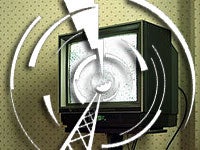 |
Television broadcasters in Wilmington, N.C., today flipped the switch on the digital television (DTV) transition in a sort of test-drive for what many have called the biggest shift in television since the introduction of color.
Wilmington will serve as a test market to work the kinks out of the transition in advance of the nationwide switchover scheduled for Feb. 17, 2009, when all broadcasters are required by law to abandon their analog broadcasts in favor of digital transmissions.
Many cities have been conducting one-day trials to determine how people will be affected in February, but Wilmington is the first market where the analog signals will be shut off forever. At a ceremony this morning in Wilmington, broadcasters and government officials praised the cooperation of public and private groups in preparing for the transition that they spoke of in historic terms.
“Today at noon, North Carolina leads the nation in an enterprise that is so exciting that it is the single most important thing that has happened in most of our lifetimes that has to do with television,” said Hank Price, president of the North Carolina Association of Broadcasters.
Capping off the ceremony, at noon, FCC Chairman Kevin Martin and Wilmington Mayor Bill Saffo jointly flipped an oversize light switch from the position labeled “analog” up to “digital.”
Asked by an Associated Press reporter if the switch was connected to anything, Price said no, that “the switch is symbolic.”
Because older sets that receive signals from an antenna will require a converter box to function after the transition, the FCC announced an ambitious education initiative last month that will have the five commissioners and numerous staffers crisscrossing the country to address the communities identified as having the highest risk for getting caught off guard next February.
That effort builds on what has already been an aggressive advertising campaign orchestrated by the FCC and the National Association of Broadcasters (NAB) that the commission credits with having significantly increased Americans’ awareness of the DTV Transition.
That ad campaign features 30-second television ad spots and longer-format infomercials discussing the transition. All of the ads direct users to the FCC’s DTV Web site for more information about how they will be affected.
An NAB survey last week found that 97 percent of Wilmington residents were aware of the transition.
To assist with the transition, the FCC is offering coupons to help defray the cost of converter boxes for people who get television over the air. As of yesterday, more than 37,500 Wilmington households had requested more than 69,000 coupons.
Compounding the technical issues affecting the Wilmington transition was the looming threat of severe weather as the storm Hannah made its way up the East Coast.
“Having this transition happen at the same time that we had an approaching hurricane was no easy task,” Saffo said. The FCC said it would have postponed the transition if a severe storm had hit. Wilmington will also have the ability to switch back to analog in case of technical problems or an emergency when television service is critical to public safety. The rest of the country will not have that option next February.
Calling Saffo’s decision to commit the city as a test market a “profile in courage,” Commissioner Michael Copps voiced regret that more cities hadn’t stepped forward to broaden the test.
“There’s no substitute for real-world experience, and you are the only people in America who will have that experience,” Copps said.
“We have some serious responsibilities to compile and distill and analyze what happened here and to disseminate it around the country.”
The spectrum that will become available as a result of the conversion was sold at auction earlier this year to wireless providers that will use it to build out advanced communications networks.


